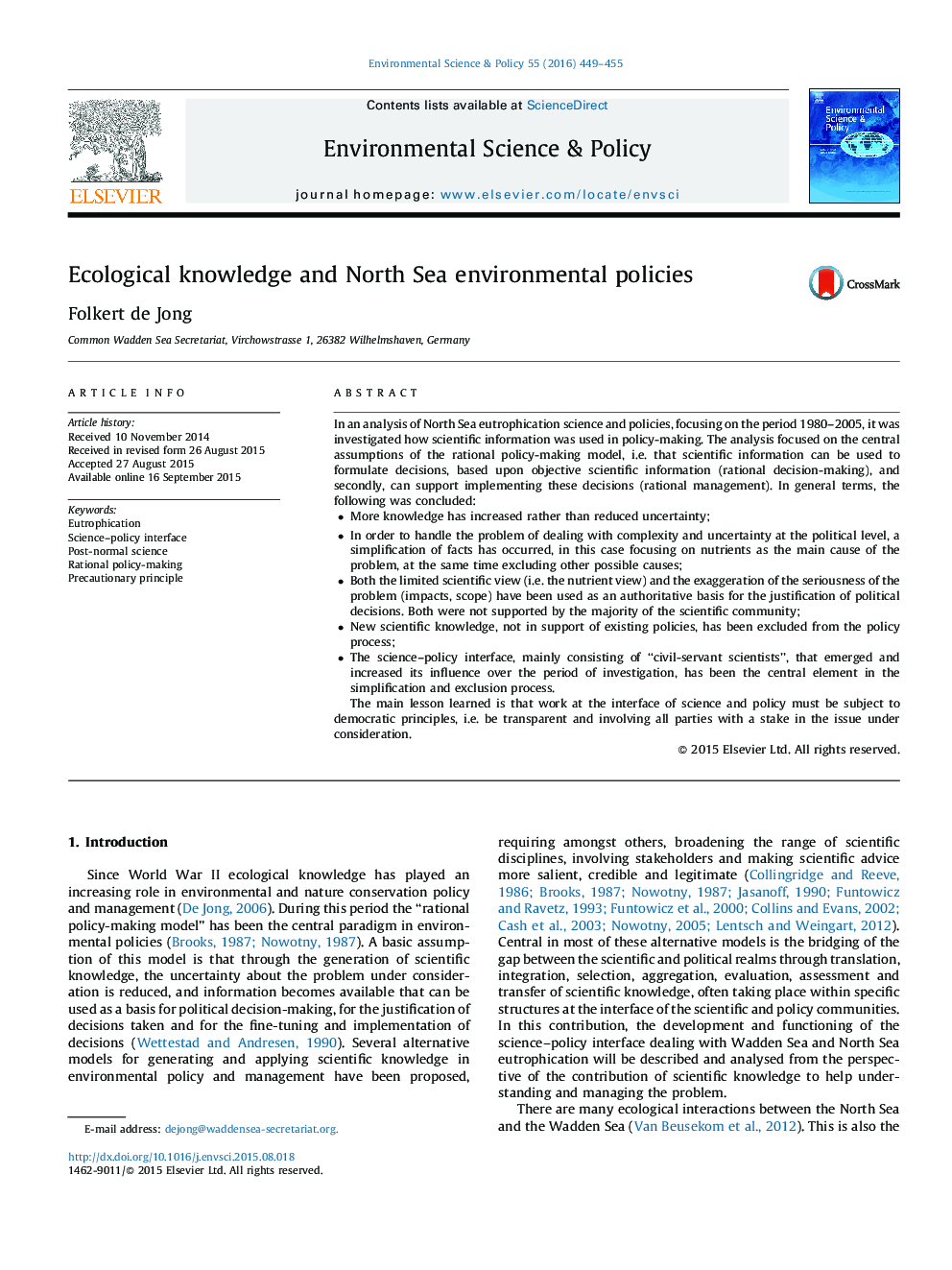| کد مقاله | کد نشریه | سال انتشار | مقاله انگلیسی | نسخه تمام متن |
|---|---|---|---|---|
| 1053442 | 946678 | 2016 | 7 صفحه PDF | دانلود رایگان |
• Analysis of use of ecological knowledge in North Sea environmental policies.
• Translation of scientific advice into policy advice by science–policy interface.
• Changing role over time of the science–policy interface.
• The science–policy interface selectively filters scientific information.
• The science–policy interface must be subject to democratic principles.
In an analysis of North Sea eutrophication science and policies, focusing on the period 1980–2005, it was investigated how scientific information was used in policy-making. The analysis focused on the central assumptions of the rational policy-making model, i.e. that scientific information can be used to formulate decisions, based upon objective scientific information (rational decision-making), and secondly, can support implementing these decisions (rational management). In general terms, the following was concluded:
• More knowledge has increased rather than reduced uncertainty;
• In order to handle the problem of dealing with complexity and uncertainty at the political level, a simplification of facts has occurred, in this case focusing on nutrients as the main cause of the problem, at the same time excluding other possible causes;
• Both the limited scientific view (i.e. the nutrient view) and the exaggeration of the seriousness of the problem (impacts, scope) have been used as an authoritative basis for the justification of political decisions. Both were not supported by the majority of the scientific community;
• New scientific knowledge, not in support of existing policies, has been excluded from the policy process;
• The science–policy interface, mainly consisting of “civil-servant scientists”, that emerged and increased its influence over the period of investigation, has been the central element in the simplification and exclusion process.The main lesson learned is that work at the interface of science and policy must be subject to democratic principles, i.e. be transparent and involving all parties with a stake in the issue under consideration.
Journal: Environmental Science & Policy - Volume 55, Part 3, January 2016, Pages 449–455
